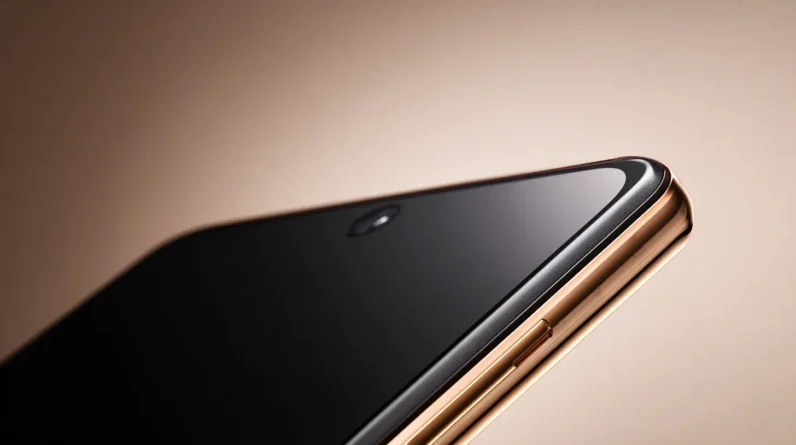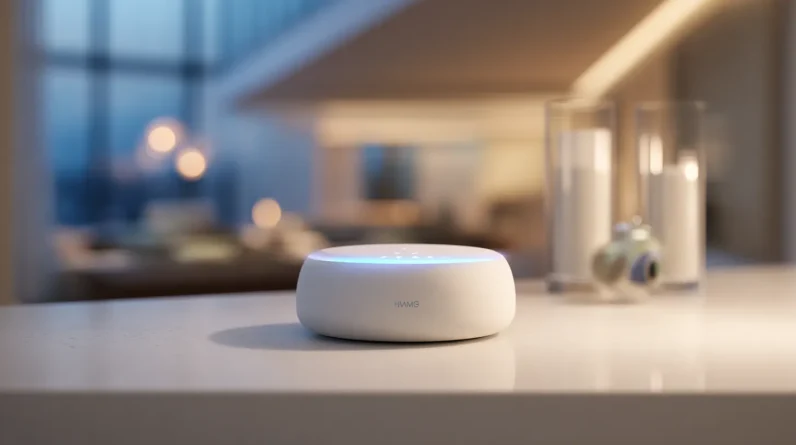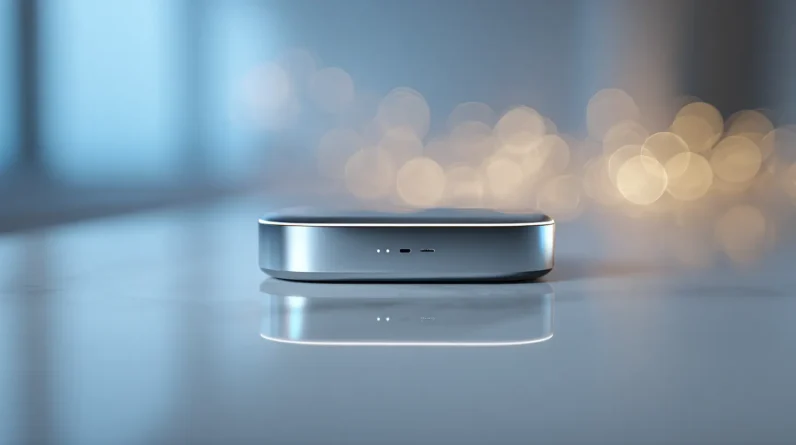
With the proliferation of smart devices in contemporary society, there arises a pressing question regarding their potential role in supporting mental health. Technology has become deeply intertwined with our daily lives, and understanding its impact on mental well-being is crucial.
This article aims to objectively explore the potential benefits of smart devices for mental health, specifically focusing on how technology can enhance emotional well-being through self-care practices.
Additionally, it seeks to analyze the harnessing of technology’s power in the field of mental health treatment.
Key Takeaways
– Smart devices can be utilized as tools for therapy and stress management.
– Increased technology use correlates with higher levels of anxiety.
– Smart devices offer new ways to monitor and manage mental health conditions.
– Technological advancements allow for innovative approaches in mental health treatment.
The Role of Smart Devices in Supporting Mental Health
The role of smart devices in supporting mental health is a topic that has garnered increasing attention in recent years. As technology continues to advance, there is growing interest in exploring how smart devices can be utilized as tools for therapy and stress management.
Smart devices offer various applications and features that can assist individuals in monitoring and managing their mental well-being. From meditation apps to sleep trackers, these devices provide users with accessible resources to address common mental health concerns such as anxiety and stress.
Additionally, smart devices can facilitate communication between individuals and healthcare professionals, allowing for remote consultations and the delivery of personalized treatment plans.
While it is important to consider the potential limitations and ethical implications of relying heavily on technology for mental health support, smart devices have the potential to enhance accessibility and convenience in seeking therapeutic interventions.
Understanding the Impact of Technology on Mental Well-being
Research on the influence of modern technological advancements on emotional and psychological welfare provides valuable insights into the effects of these innovations. Technology has become an integral part of our lives, impacting various aspects of human well-being. Three key points to consider are:
Technology and Anxiety: Studies have shown a correlation between increased technology use and higher levels of anxiety. Constant exposure to social media, notifications, and information overload can contribute to feelings of stress and overwhelm.
Digital Detox: Recognizing the negative impact of excessive technology use, individuals are turning to digital detoxes as a means to improve mental health. Taking breaks from screens can help reduce anxiety, increase mindfulness, and enhance overall well-being.
Mental Health Benefits: While technology can be detrimental in some cases, it also offers opportunities for improving mental health. Accessible mental health resources through apps and online platforms provide support for those struggling with various conditions.
Understanding the impact of technology on mental well-being is crucial in navigating our increasingly digitized world. Striking a balance between utilizing technology for its benefits while being mindful of its potential harm is essential for maintaining optimal mental health in today’s society.
Exploring the Potential Benefits of Smart Devices for Mental Health
An exploration of the potential benefits of incorporating intelligent devices into mental well-being practices reveals opportunities for enhancing individuals’ overall emotional and psychological welfare.
Smart devices have shown promise in various aspects of therapy, offering new ways to monitor and manage mental health conditions. For instance, mobile applications that provide cognitive-behavioral therapy exercises or mindfulness meditation sessions can help individuals cope with stress and anxiety.
Additionally, wearable devices equipped with sensors can track physiological indicators such as heart rate variability or sleep patterns, providing valuable insights into a person’s mental state.
However, it is crucial to examine the ethical implications of using smart devices for mental health. Issues such as data privacy, consent, and the potential reliance on technology must be carefully considered to ensure responsible implementation.
Nonetheless, when used appropriately and ethically, smart devices can contribute positively to supporting individuals’ mental well-being by expanding access to therapeutic resources and empowering users to take an active role in their own care.
Smart Devices and Self-care: How Technology Can Enhance Emotional Well-being
Examining the potential benefits of incorporating intelligent devices into self-care practices reveals opportunities for enhancing emotional well-being. Smart devices offer a range of features that can contribute to individuals’ self-care routines, promoting better mental health and overall well-being.
The following are three ways in which smart devices can enhance emotional well-being:
Emotional monitoring: Smart devices equipped with sensors and biometric technology can track various physiological indicators such as heart rate, sleep patterns, and stress levels. This data can provide valuable insights into an individual’s emotional state, allowing them to identify triggers or patterns that may affect their well-being.
Digital therapy: Smart devices can offer access to digital therapeutic tools and resources. These include meditation apps, cognitive-behavioral therapy programs, mood trackers, and virtual support groups. Individuals can engage in these activities on their own time and in the privacy of their own homes.
Personalized interventions: Through artificial intelligence algorithms, smart devices can analyze user data and provide personalized recommendations or interventions based on an individual’s specific needs. This tailored approach allows individuals to receive targeted support in managing their emotions and improving their well-being.
Harnessing the Power of Technology in Mental Health Treatment
Utilizing the capabilities of technological advancements allows for innovative approaches in the treatment of mental health conditions. Technology in therapy, also known as digital mental health, has emerged as a promising avenue for enhancing mental well-being.
With the advent of smartphones, wearable devices, and online platforms, individuals now have access to a range of digital tools that can support their mental health journey. These technologies offer various benefits such as convenience, affordability, and scalability. They provide individuals with opportunities for self-reflection, self-monitoring, and skill development through interactive applications and virtual reality experiences.
Additionally, technology in therapy can improve access to care by bridging geographical barriers and reducing stigma associated with seeking help. While these advancements hold immense potential, it is crucial to ensure their ethical use and integration into traditional therapeutic practices to maximize their impact on mental health outcomes.
Frequently Asked Questions (FAQs)
Are There Any Risks or Potential Negative Impacts Associated With Using Smart Devices for Mental Health Support?
Potential risks and negative impacts associated with using smart devices for mental health support should be considered. It is important to analyze the possible adverse effects and assess whether these technologies can truly offer effective and safe solutions for individuals seeking mental health support.
How Do Smart Devices Specifically Contribute to Self-Care Practices and Emotional Well-Being?
The contribution of smart devices to self-care practices and emotional well-being is a complex and multifaceted topic. Research suggests that these devices can offer various tools and resources that individuals can utilize to enhance their self-care routines and support their emotional well-being. However, it is important to consider the potential limitations and challenges associated with relying solely on technology for self-care, as human interaction and personalized approaches may also be crucial for optimal outcomes.
What Are Some Practical Tips or Guidelines for Using Smart Devices in a Way That Maximizes Their Benefits for Mental Health?
Practical tips and guidelines for maximizing the benefits of smart devices for mental health include setting boundaries, limiting screen time, using mindfulness apps, seeking professional advice when needed, and being aware of potential risks and limitations.
Can Smart Devices Be Used as a Substitute for Traditional Mental Health Treatments or Therapy?
Smart devices have the potential to be used as substitutes for traditional mental health treatments or therapy. However, their use carries potential risks that need to be considered, such as reliance on technology rather than human interaction.
Are There Any Limitations or Challenges in the Current Use of Smart Devices for Mental Health Support That Need to Be Addressed?
Limitations and challenges exist in the current use of smart devices for mental health support. These include concerns about privacy, accuracy, efficacy, accessibility, and the potential for overreliance on technology without human interaction.
Conclusion
In conclusion, smart devices have the potential to greatly impact and support mental health. The use of technology in mental well-being is a promising avenue for enhancing emotional well-being and providing effective treatment options.
By harnessing the power of smart devices, individuals can access self-care tools and resources that promote their overall mental wellness. With the ever-evolving advancements in technology, we are witnessing a transformative era where these devices can play a crucial role in shaping the future of mental health care.
The possibilities are truly infinite.







